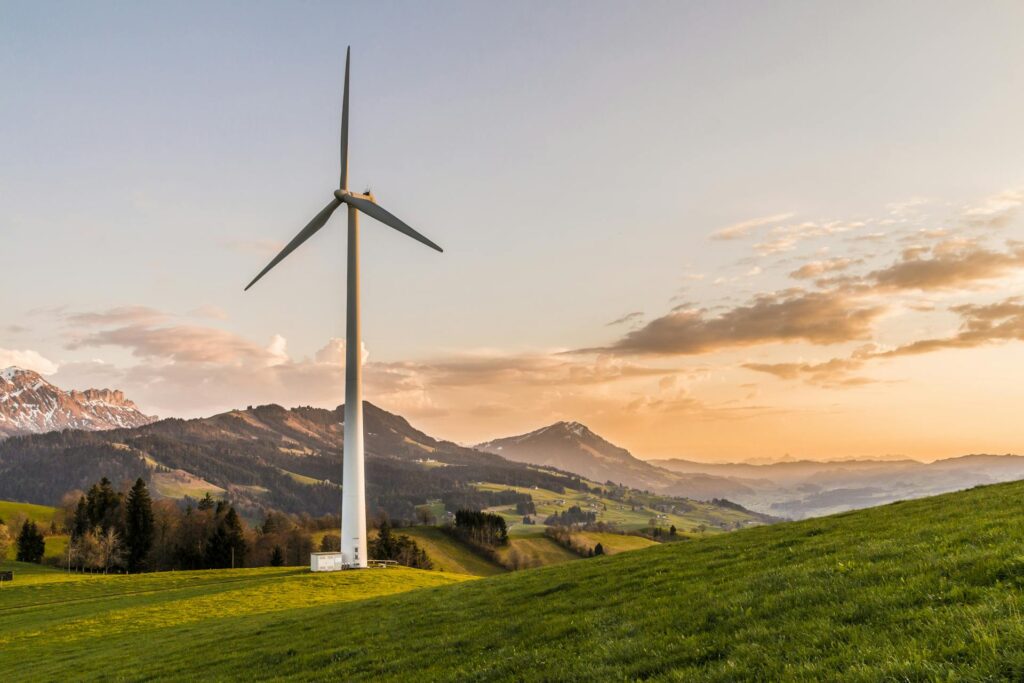As the world grapples with climate change and the depletion of fossil fuel resources, the renewable energy sector is experiencing a groundbreaking transformation. Innovations in technology and practices are propelling the renewable energy revolution, making clean energy sources more efficient, accessible, and economically viable. Here’s a closer look at some of the most exciting innovations driving the future of energy and shaping the renewable revolution.
1. Advanced Solar Technologies
Solar energy remains a cornerstone of the renewable energy revolution, and recent advancements are pushing its potential even further. Innovations such as perovskite solar cells are set to revolutionize the industry by offering higher efficiency and lower production costs compared to traditional silicon-based solar panels. Additionally, bifacial solar panels can capture sunlight from both sides, increasing energy output. Solar thermal storage systems are also emerging, allowing solar energy to be stored and used even when the sun isn’t shining, thus addressing the intermittency issue associated with solar power.
2. Breakthrough Wind Turbine Designs
Wind energy is another major player in the renewable energy landscape. New designs and technologies are enhancing the efficiency and performance of wind turbines. Floating wind turbines, for instance, are designed to operate in deep water where conventional fixed-bottom turbines cannot be installed. These floating platforms can harness strong offshore winds, expanding the potential for wind energy production. Vertical-axis wind turbines are also gaining traction, offering a more compact and versatile design that can be used in urban environments.
3. Energy Storage Solutions
The integration of renewable energy sources into the grid relies heavily on effective energy storage solutions. Lithium-ion batteries have been the go-to technology for energy storage, but solid-state batteries are now emerging as a safer, more efficient alternative with higher energy densities and longer lifespans. Flow batteries and pumped hydro storage are also making waves by providing scalable and long-duration energy storage options. These innovations are crucial for balancing supply and demand and ensuring a stable energy supply.
4. Smart Grid Technology
The future of energy also involves smarter grid systems that can better manage and distribute renewable energy. Smart grids use advanced sensors, communication technologies, and data analytics to enhance grid reliability and efficiency. They enable real-time monitoring and control, facilitate the integration of distributed energy resources (DERs), and optimize energy consumption. Technologies such as demand response and grid energy storage help manage peak loads and reduce energy costs.
5. Hydrogen Energy Innovations
Hydrogen is emerging as a versatile and clean energy carrier with significant potential. Green hydrogen, produced using renewable energy through the process of electrolysis, is gaining attention as a zero-emission fuel for various applications, including transportation and industrial processes. Innovations in hydrogen storage and fuel cell technology are making it more feasible to utilize hydrogen in diverse sectors, contributing to decarbonization efforts.
6. Geothermal Energy Advancements
Geothermal energy is a reliable and consistent source of power, and recent advancements are enhancing its potential. Enhanced geothermal systems (EGS) are being developed to extract heat from geothermal resources that were previously inaccessible. Innovations in geothermal heat pumps are also improving the efficiency of heating and cooling systems, making geothermal energy a viable option for residential and commercial buildings.
7. Bioenergy and Waste-to-Energy Technologies
Bioenergy harnesses organic materials to produce energy, and new technologies are making this process more efficient and sustainable. Advanced biofuels are being developed from non-food sources, such as algae and agricultural residues, reducing competition with food crops and improving energy yields. Waste-to-energy technologies, such as anaerobic digestion and gasification, are turning municipal and agricultural waste into valuable energy resources while reducing landfill use and greenhouse gas emissions.
8. Building-Integrated Photovoltaics (BIPV)
Building-integrated photovoltaics (BIPV) represent a significant step forward in integrating solar energy into urban environments. BIPV systems are designed to be incorporated into the building materials themselves, such as solar windows, facades, and roofing materials. This innovation allows buildings to generate their own electricity while maintaining aesthetic and architectural integrity, paving the way for energy-efficient and sustainable urban development.
9. Artificial Intelligence and Machine Learning
Artificial intelligence (AI) and machine learning are playing increasingly important roles in optimizing renewable energy systems. AI algorithms are used for predictive maintenance, performance optimization, and energy management. By analyzing vast amounts of data, AI can forecast energy production and consumption patterns, improve grid management, and enhance the efficiency of renewable energy installations.
10. Decentralized Energy Systems
The shift towards decentralized energy systems is transforming the traditional energy model. Technologies such as microgrids and peer-to-peer energy trading platforms enable communities and individuals to generate, store, and share renewable energy locally. These decentralized systems enhance energy resilience, reduce transmission losses, and empower consumers to actively participate in the energy market.
Conclusion
The future of energy is being shaped by a wave of innovations that are making renewable energy more efficient, accessible, and sustainable. From advanced solar technologies and breakthrough wind turbine designs to cutting-edge energy storage solutions and smart grid systems, these innovations are driving the renewable revolution forward. As we continue to invest in and develop these technologies, we move closer to a future where clean, sustainable energy is the norm, not the exception.
Embracing these innovations not only addresses the urgent need for climate action but also opens up new opportunities for economic growth, energy security, and technological advancement. By staying informed and supporting these advancements, we can all contribute to a cleaner, greener, and more sustainable future.
Keywords: renewable energy innovations, future of energy, solar technologies, perovskite solar cells, bifacial solar panels, wind turbine designs, floating wind turbines, vertical-axis wind turbines, energy storage solutions, lithium-ion batteries, solid-state batteries, smart grid technology, green hydrogen, hydrogen energy, geothermal energy advancements, bioenergy, waste-to-energy technologies, building-integrated photovoltaics, artificial intelligence in energy, decentralized energy systems, microgrids, peer-to-peer energy trading.



